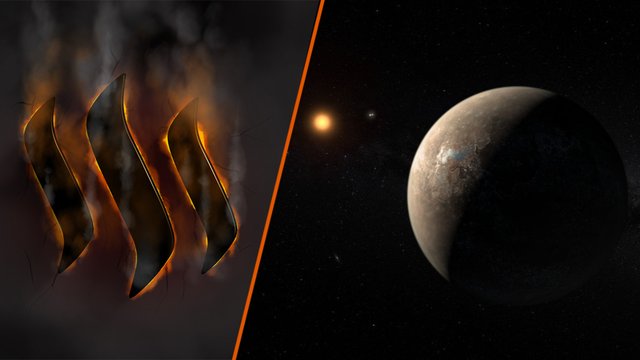
Our Universe. Its dimensions are so incredibly huge that it's hard for humans to imagine and realize it's true size.
We are just a tiny piece in this huge, complex mechanism, and we are only slowly discovering our neighbors!
The question of other life in space is age-old and has been discussed thousands of times.
And now, there might be a new puzzle piece which could potentially be a huge discovery in the future ...
In August, Astronomers have found a new planet with a similar size to earth, which could potentially be inhabitable!
Proxima Centauri B circles our closest neighboring star, Proxima Centauri, and is about 4.2 light years away from the earth.
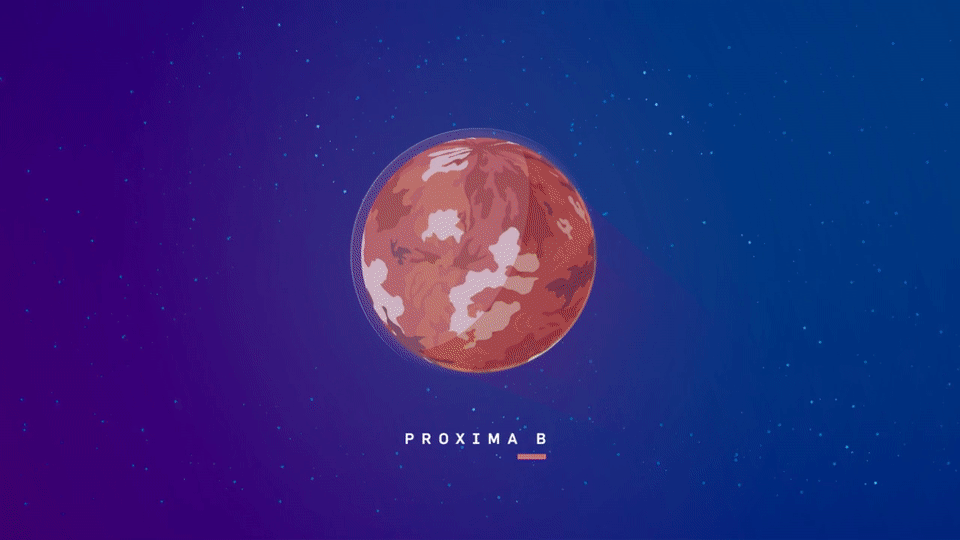
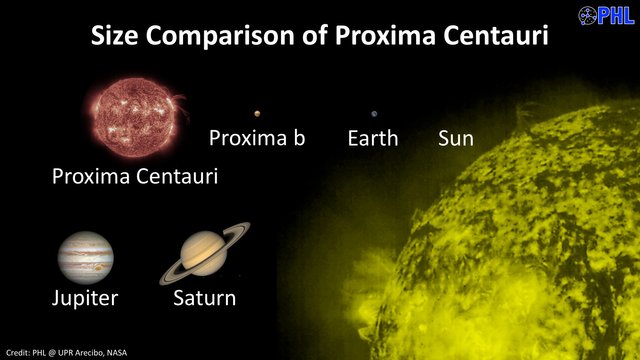
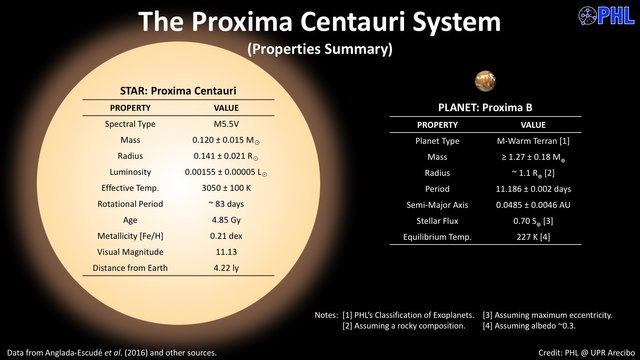
"It’s not only the closest planet to our solar system, it's the closest planet outside of our solar system that will ever be found" - Astrophysicist Ansgar Reiners
To discover such a planet is not that easy. Astronomers have been watching it closely for a long time, and noticed that the star's light shifted a tiny bit every 11 days. This means that the star was shifting towards and away from earth a little bit, indicating that there actually is a planet!
This is called a "Doppler Shift".
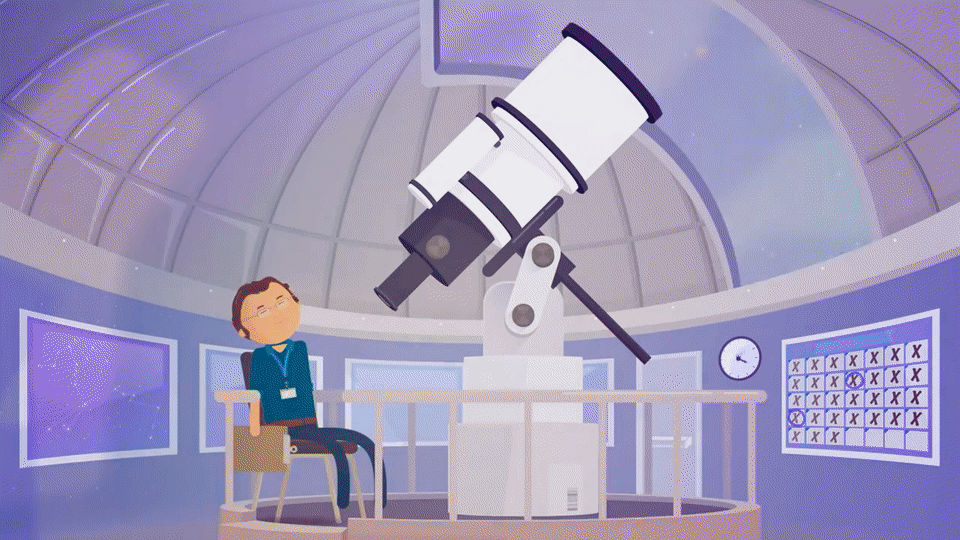
Proxima Centauri is actually so far away that these slight variations only look like a shadow from a telescope on earth.
That's why researchers had to observe the exoplanets around it for years, to make sure it was really the existence of a planet they're looking at and not just a sun spot or a different reason for the light variations.
"Once we had established that the wobble wasn’t caused by star spots, we knew that that there must be a planet orbiting within a zone where water could exist, which is really exciting. If further research concludes that the conditions of its atmosphere are suitable to support life, this is arguably one of the most important scientific discoveries we will ever make!"
- John Barnes , Co-Author of the official Proxima Centauri B research paper
Proxima B orbits the star in a zone that might actually become inhabitable in the future.
BUT this is still only a theory. Proxima B would need an atmosphere and liquid water, which hasn't been confirmed yet.
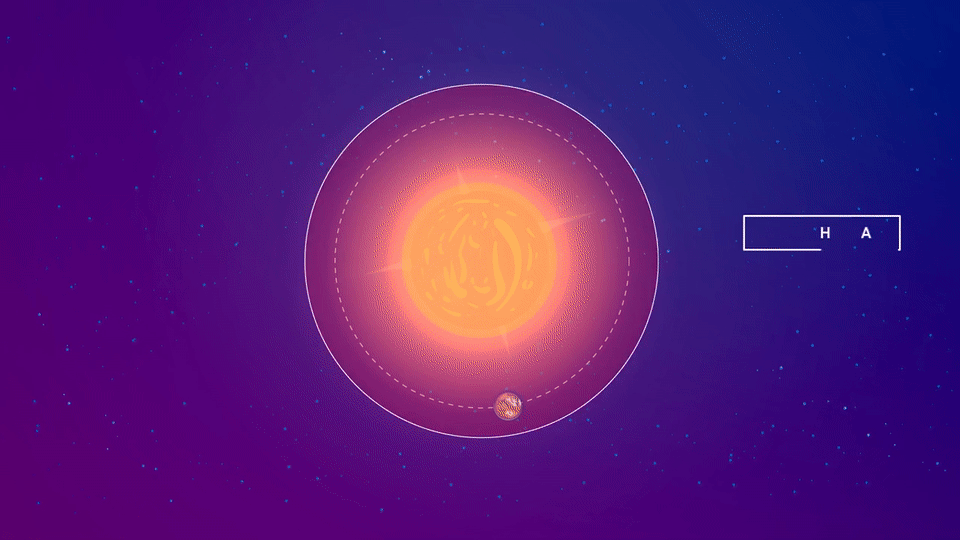
Proxima B orbits Proxima Centauri at 5% distance between sun and earth - this is only possible because Proxima Centauri isn't nearly as powerful and hot as the sun (otherwise it would've already destryoed the planet's surface).
The scientists estimate that Proxima B gets about 65% of the radiation that earth has.
But without an atmosphere, temperatures on the planet would be way too cold (about -40°C) to inherit life. (But then again, temperatures on earth would be around -20°C without an atmosphere too!)
The planet is suggested to be quite rocky, and a year there is only 11 days long!
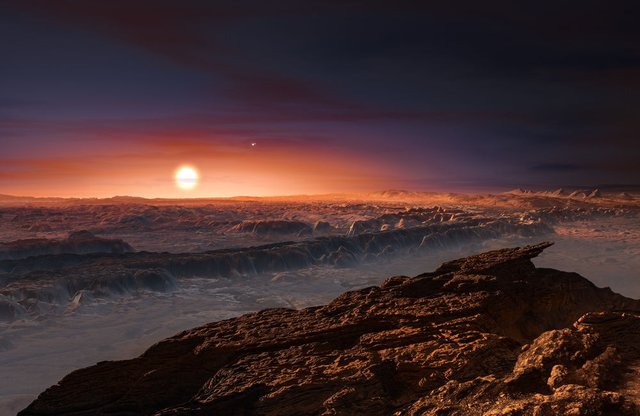
Unfortunately, humans will not be able to visit Proxima Centauri B in person with our current technology.
While it's our closest neighboring star, 4.2 light years of distance is still a lot.
It would take thousands of years to reach it with one of our current space ships.
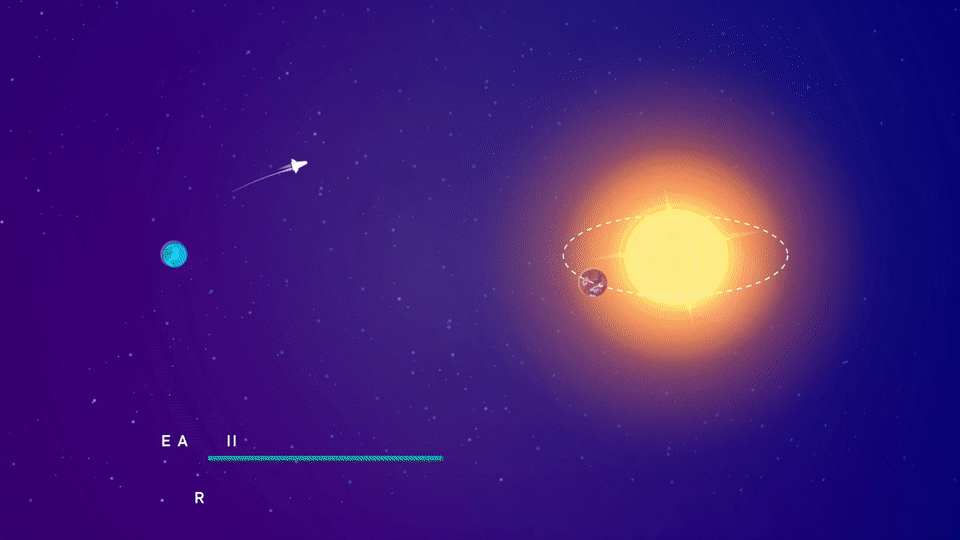
So for now, there's still a long way to go. But it will be interesting to see how research around Proxima B develops, and if it will eventually become inhabitable for life!
Images: 1, Gifs, 2, 3, 4, Steemit Logo @thebatchman
- Instagram -

© Sirwinchester
I love this type of space related infographic-porn. Here is an awesome site you should check out...
http://distancetomars.com/
I promise you will not be disappointed.
Downvoting a post can decrease pending rewards and make it less visible. Common reasons:
Submit
I wasn't disappointed, that's awesome!
The distances in space are so huge, it's really hard to imagine..
Downvoting a post can decrease pending rewards and make it less visible. Common reasons:
Submit
the universe is soooo huge, i think there must be other forms of life out there!!
Downvoting a post can decrease pending rewards and make it less visible. Common reasons:
Submit
the dimensions are incredibly hard to imagine.. it's so big, there is almost an endless amount of planets to discover!
Downvoting a post can decrease pending rewards and make it less visible. Common reasons:
Submit
imagine we'll actually be living on different planets in the future- crazy!
Downvoting a post can decrease pending rewards and make it less visible. Common reasons:
Submit
we'll see if that will happen in the future!
Downvoting a post can decrease pending rewards and make it less visible. Common reasons:
Submit
It will absolutely happen, but we have to not kill each other first :(
Downvoting a post can decrease pending rewards and make it less visible. Common reasons:
Submit
very interesting info, thanks for sharing.. let's hope our speceship technology will improve so that we can actually go there!
Downvoting a post can decrease pending rewards and make it less visible. Common reasons:
Submit
That's the goal, and I'm sure it'll happen some day!
Downvoting a post can decrease pending rewards and make it less visible. Common reasons:
Submit
technology nowadays is already crazy, but just imagine if we had a more advanced telescope or even a space ship to visit the planet and do all sorts of scientific tests, we'd be able to find out so much more!
Downvoting a post can decrease pending rewards and make it less visible. Common reasons:
Submit
the time will come, I'll be interested to see where technology and astronomers will be at in a few decades!
Downvoting a post can decrease pending rewards and make it less visible. Common reasons:
Submit
Interesting! Upvoted!
Downvoting a post can decrease pending rewards and make it less visible. Common reasons:
Submit
thank you!
Downvoting a post can decrease pending rewards and make it less visible. Common reasons:
Submit
Downvoting a post can decrease pending rewards and make it less visible. Common reasons:
Submit
great post and very interesting read!! upvoted
Downvoting a post can decrease pending rewards and make it less visible. Common reasons:
Submit
Beam me up there, Scotty!
Downvoting a post can decrease pending rewards and make it less visible. Common reasons:
Submit
beaming would be much more amazing than traveling for years !
Downvoting a post can decrease pending rewards and make it less visible. Common reasons:
Submit
4.2 lightyears away... that's crazy
Downvoting a post can decrease pending rewards and make it less visible. Common reasons:
Submit
we're far away from being able to travel that distance with current technology!
Downvoting a post can decrease pending rewards and make it less visible. Common reasons:
Submit
I read about this recently. I also heard someone discussing how it would be feasible to get a probe there within 20 years using new technology. That would mean getting signals back within most of our lifetimes!
Downvoting a post can decrease pending rewards and make it less visible. Common reasons:
Submit
Excellent write-up! I really enjoyed that artist's rendition of what the surface might look like, as-well as the "infographic-porn" (LOL). Also, I might add, I don't think there's really much chance of there not being intelligent life elsewhere in the Universe, mathematically speaking, considering the number of stars and average amount of planets (that we know of), it's almost impossible for there not to be intelligent life elsewhere in the cosmos. If it happened here, it definitely happened elsewhere. I'm not a scientist, just speaking with logic here based upon the size -edit- and density of the known universe. Thanks for sharing!
Downvoting a post can decrease pending rewards and make it less visible. Common reasons:
Submit
This post has been linked to from another place on Steem.
Learn more about and upvote to support linkback bot v0.5. Flag this comment if you don't want the bot to continue posting linkbacks for your posts.
Built by @ontofractal
Downvoting a post can decrease pending rewards and make it less visible. Common reasons:
Submit